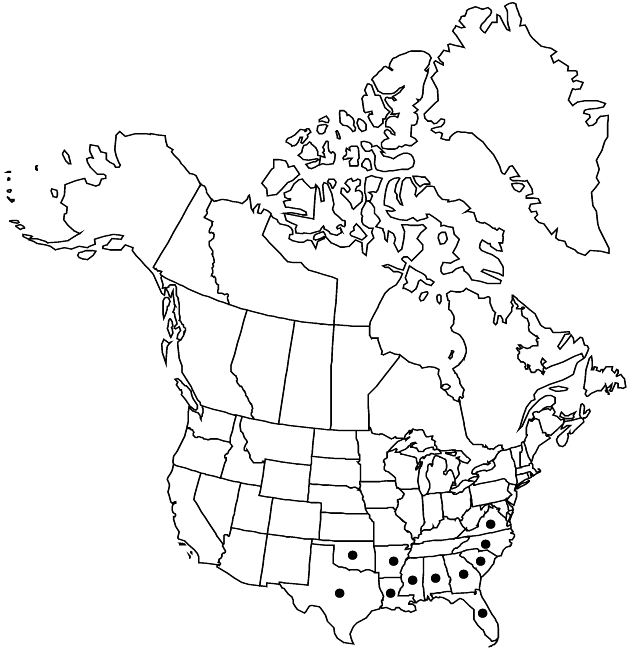Croptilon divaricatum
Fl. Tellur. 2: 47. 1837.
Common names: Slender scratchdaisy
IllustratedEndemic
Basionym: Inula divaricata Nuttall Gen. N. Amer. Pl. 2: 152. 1818
Treatment appears in FNA Volume 20. Treatment on page 229.
Stems erect, 20–100 cm. Cauline leaf blades lanceolate to linear, reduced distally (becoming bractlike near heads), margins usually serrate apically, rarely entire. Peduncles usually glabrate, sometimes hispid, stipitate-glandular. Involucres turbinate, (2–)2.5–5 mm diam. Ray florets 5–11; corolla laminae 4–6 mm. Disc florets (9–)14–22(–26). 2n = 8.
Phenology: Flowering (Jul–)Aug–Oct(–Nov).
Habitat: Sand, sandy loam, and sandy clay, oak and pine woods, usually in openings, roadsides, banks, fencerows
Elevation: 0–500 m
Distribution

Ala., Ark., Fla., Ga., La., Miss., N.C., Okla., S.C., Tex., Va.
Discussion
Selected References
None.
Lower Taxa
None.
